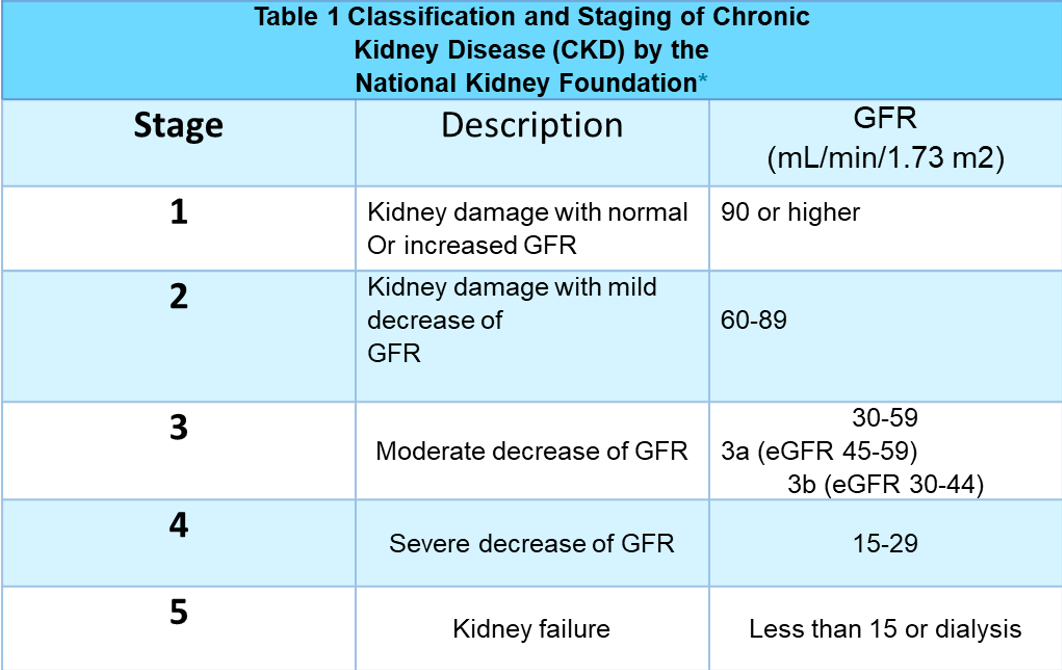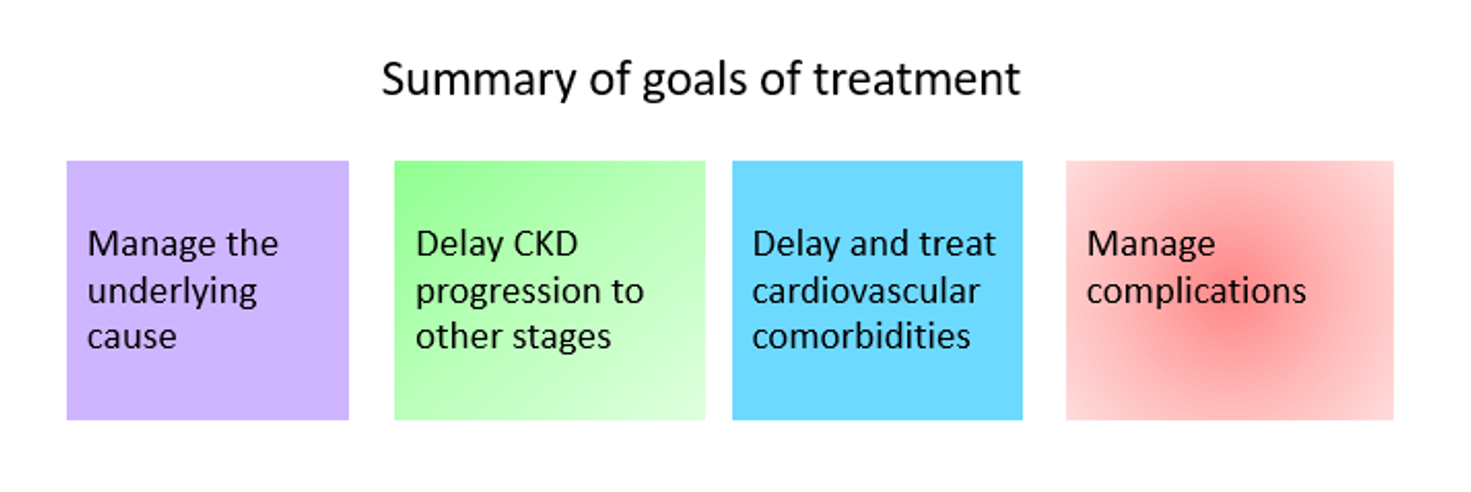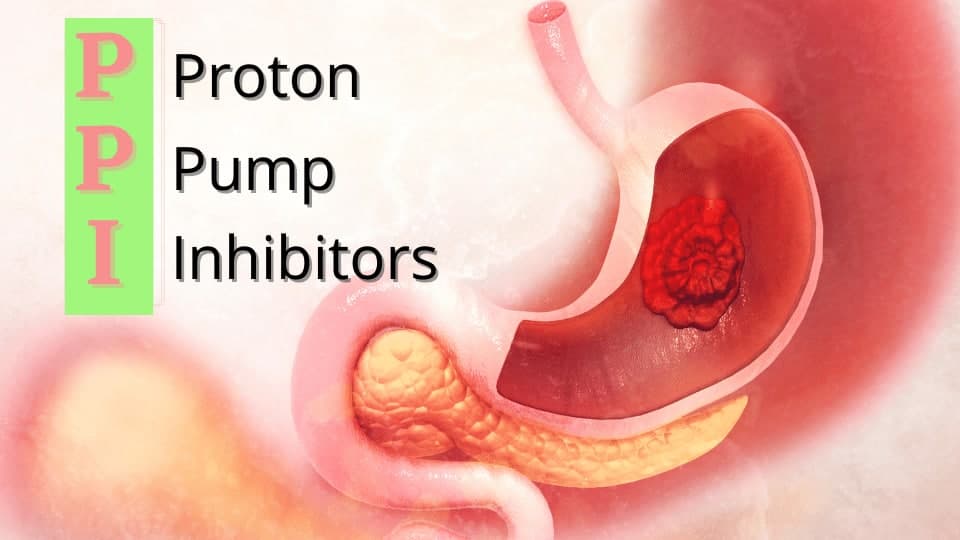Chronic kidney disease describes the gradual and progressive loss of kidney function. It is a disease in which lasting irreversible damage reduces kidney function.
Chronic kidney disease (CKD) can also be described as a state of reduced GFR (glomerular filtration rate) to less than 60 mL/min/1.73 m2 for 3 months or more.
Patients with CKD tend to have an irreversible loss of the nephrons and thus an irreversible loss of kidney function. That’s because nephrons are the functional units of the kidneys, the loss of those functional units leads to the loss of kidney function which will eventually result in an overall toxic state.
If the damage gets worse it could lead to a state in which your kidneys will stop functioning. If your kidneys stop functioning you have kidney failure (or end-stage renal disease /ESRD).

When chronic kidney disease (CKD) is at its early stages (Stages 1&2) it usually doesn’t cause symptoms in patients, so it could be said CKD is asymptomatic at the very beginning and can only be diagnosed through testing.
However, after CKD gradually progresses into later stages, waste and extra fluid tend to build up in the body. Hence the individual will experience one or more of the following symptoms:
CKD can result from any underlying kidney disease that is caused by either acute kidney injury or slowly progressive kidney disease.
Discussing all the causes of kidney disease is beyond the scope of this Article. Instead, we will focus on the most common causes of CKD.
1-) Diabetes
Diabetes is the leading cause of CKD and Kidney failure (ESRD) worldwide. Diabetic nephropathy occurs in both type I and type II diabetes, meaning both types of diabetes cause CKD.
2-) High blood pressure (hypertension)
is the second most common cause of CKD and kidney failure (ESRD).
3-) Glomerulonephritis
or the inflammation of the glomeruli could cause permanent damage to the glomeruli and initiate CKD; if the glomeruli are damaged the kidneys can’t function properly.
4-) Autosomal dominant polycystic kidney disease
This cause of CKD is a genetic disorder that results in the formation of cysts inside the kidneys.
5-) Kidney stones
Kidney stones rarely cause CKD, but when left untreated they could definitely lead to kidney damage hence causing CKD.
While those are the most common causes for the initiation of CKD, certain other factors increase the risk for progression of CKD into worse conditions, such as:
A patient is diagnosed with chronic kidney disease CKD when they have either of these:
The following classification is based on the estimated glomerular filtration rate (eGFR).

Read more about the stages of CKD.
There is no permanent cure for CKD because the disease is irreversible and the damage is permanent, in severe cases when CKD progresses to stage 5 (in which the kidneys fail) dialysis and kidney transplantation may be required.
However certain steps could be taken to delay the progression of CKD to later stages; thus, the aim of treatment is to delay progression as much as possible.

Kidneys are the central control center for homeostasis, thus they are very important to maintain balance inside the human body, when they lose their ability to maintain balance a number of complications (including other diseases) tend to arise.
CKD could lead to the following health complications:
Some of these complications arise as direct consequences of losing kidney function.
Many complications, however, result from treatment of the causes of CKD (such as the treatment for glomerulonephritis).
To prevent CKD either from happening or from progressing further (if you are already diagnosed with it), here are some preventive actions that you could take:
The complications and further progression of CKD will deny us the long health-span we all desire; Nevertheless, half of the causes of CKD are preventable, thus it’s best to take those preventions seriously in order to increase the likelihood of a CKD-free life.
1. K/DOQI clinical practice guidelines for chronic kidney disease: evaluation, classification, and stratification. Am J Kidney Dis 39(Suppl 1):S1-S266, 2002.
2. Karl Skorecki, Glenn M. Chertow et al., Brenner & Rector’s the Kidney, 10th edition, Philadelphia, United States of America, Elsevier, [2016]
3. Jonathan Himmelfarb et al., Chronic Kidney Disease, Dialysis, and Transplantation, 3rd edition, Philadelphia, United States of America, Saunders (an imprint of Elsevier Inc.), [2010]
4. John Feehally et al., Comprehensive Clinical Nephrology, 6th edition, Philadelphia, United States of America, Elsevier -Health Sciences Division, [2018]
5. Christopher S. Wilcom et al., Therapy in Nephrology and Hypertension- A Companion to Brenner & Rector's the Kidney, 3rd Edition, Philadelphia, United States of America, Saunders/an imprint of Elsevier, [2008]
Proton Pump Inhibitors (PPIs) are used in the treatment of heartburn, gastric ulcers and various acid related disorders, Examples of PPIs include: Omeprazole, Lansoprazole and…

Hyperemia is buildup of blood within vessels of an organ. Hyperemia is divided into two types: Active and passive, what causes active hyperemia?

Click to read more about how the correct use of the medication, the special precautions that must be considered, as well as its side effects.

Dosage guide instructing the correct way of using Aciphex, including the right dose for the right age and condition.
